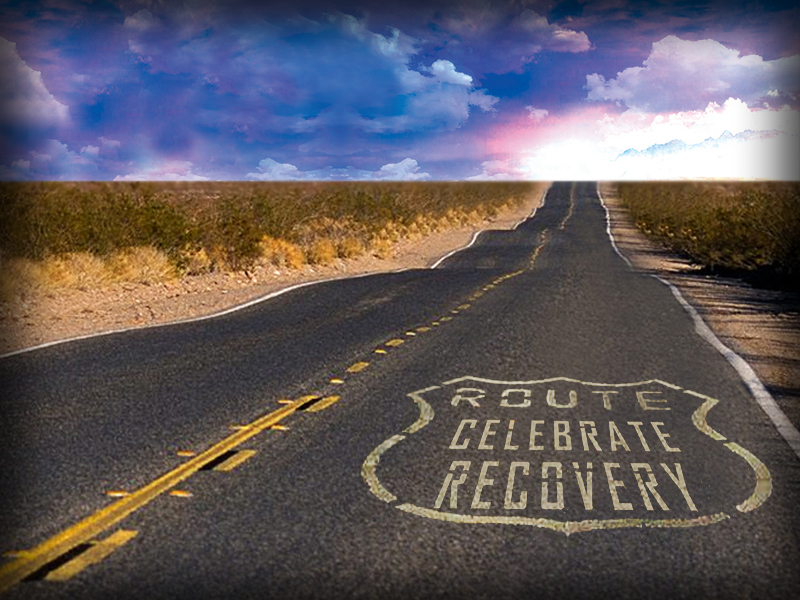I went to Celebrate Recovery for several years. It is an understatement to say it was one of the most wonderful experiences I have ever had.
Some of the life-changing discoveries the program brings include:
- We all have issues. Some of us just don’t realize it yet.
- The hardest step is the first one, to walk in the door. After that, it’s much easier.
- Help can be found in an accepting and safe environment surrounded by people who care.
 Celebrate Recovery is a Biblical and holistic program to help people overcome their hurts, habits, and hang-ups. People go there to find a more healthy way of living and deal with issues with alcohol, drugs, sexual addiction, and gambling or help them with problems caused by anger, control, anxiety, depression, insecurity, codependency, and many other issues.
Celebrate Recovery is a Biblical and holistic program to help people overcome their hurts, habits, and hang-ups. People go there to find a more healthy way of living and deal with issues with alcohol, drugs, sexual addiction, and gambling or help them with problems caused by anger, control, anxiety, depression, insecurity, codependency, and many other issues.
Celebrate Recovery is a Christ-centered program anchored in Biblical truth. The 12 Steps with accompanying Scriptures and the 8 Principles based on the Beatitudes offer participants a path of salvation and discipleship. Together, they present a lifestyle that brings hope, freedom, sobriety, healing, and an opportunity to give back one day at a time through our one and only true Higher Power, Jesus Christ. The 12 Steps and the 8 Principles work seamlessly together, tying recovery to timeless Biblical teaching.
The 12 Steps and Biblical Comparisons
1. We admitted we were powerless over our addictions and compulsive behaviors, that our lives had become unmanageable. I know that nothing good lives in me, that is, in my sinful nature.
“For I have the desire to do what is good, but I cannot carry it out.” (Romans 7:18)
2. We came to believe that a power greater than ourselves could restore us to sanity.
“For it is God who works in you to will and to act according to his good purpose.” (Philippians 2:1)
3. We made a decision to turn our lives and our wills over to the care of God.
“Therefore, I urge you, brothers, in view of God’s mercy, to offer your bodies as living sacrifices, holy and pleasing to God – this is your spiritual act of worship.” (Romans 12:1)
 4. We made a searching and fearless moral inventory of ourselves.
4. We made a searching and fearless moral inventory of ourselves.
“Let us examine our ways and test them, and let us return to the Lord.” (Lamentations 3:40)
5. We admitted to God, to ourselves, and to another human being the exact nature of our wrongs.
“Therefore confess your sins to each other and pray for each other so that you may be healed.” (James 5:16)
6. We were entirely ready to have God remove all these defects of character.
“Humble yourselves before the Lord, and he will lift you up.” (James 4:10)
7. We humbly asked Him to remove all our shortcomings.
“If we confess our sins, he is faithful and will forgive us our sins and purify us from all unrighteousness.” (1 John 1:9)
8. We made a list of all persons we had harmed and became willing to make amends to them all.
“Do to others as you would have them do to you.” (Luke 6:31)
9. We made direct amends to such people whenever possible, except when to do so would injure them or others.
“Therefore, if you are offering your gift at the altar and there remember that your brother has something against you, leave your gift there in front of the altar. First go and be reconciled to your brother; then come and offer your gift.” (Matthew 5:23-24)
 10. We continue to take personal inventory and when we were wrong, promptly admitted it.
10. We continue to take personal inventory and when we were wrong, promptly admitted it.
“So, if you think you are standing firm, be careful that you don’t fall!” (1 Corinthians 10:12)
11. We sought through prayer and meditation to improve our conscious contact with God, praying only for knowledge of His will for us, and power to carry that out.
“Let the word of Christ dwell in you richly.” (Colossians 3:16)
12. Having had a spiritual experience as the result of these steps, we try to carry this message to others and practice these principles in all our affairs.
“Brothers, if someone is caught in a sin, you who are spiritual should restore them gently. But watch yourself, or you also may be tempted.” (Galatians 6:1)
8 Life Principles Based On the Beatitudes
1. Realize I’m not God; I admit that I am powerless to control my tendency to do the wrong thing and that my life is unmanageable. (Step 1)
“Happy are those who know that they are spiritually poor.”
2. Earnestly believe that God exists, that I matter to Him and that He has the power to help me recover. (Step 2)
“Happy are those who mourn, for they shall be comforted.”
 3. Consciously choose to commit all my life and will to Christ’s care and control. (Step 3)
3. Consciously choose to commit all my life and will to Christ’s care and control. (Step 3)
“Happy are the meek.”
4. Openly examine and confess my faults to myself, to God, and to someone I trust. (Steps 4 & 5)
“Happy are the pure in heart.”
5. Voluntarily submit to any and all changes God wants to make in my life and humbly ask Him to remove my character defects. (Steps 6 & 7)
“Happy are those whose greatest desire is to do what God requires.”
6. Evaluate all my relationships. Offer forgiveness to those who have hurt me and make amends for harm I’ve done to others when possible, except when to do so would harm them or others. (Steps 8 & 9)
“Happy are the merciful.” “Happy are the peacemakers.”
7. Reserve a daily time with God for self-examination, Bible reading, and prayer in order to know God and His will for my life and to gain the power to follow His will. (Steps 10 & 11)
8. Yield myself to God to be used to bring this Good News to others, both by my example and my words. (Step 12)
“Happy are those who are persecuted because they do what God requires.”
Question: Do you know someone that would benefit from going to Celebrate Recovery?
Action: If that person was you, find a Celebrate Recovery near you and give it a try.

